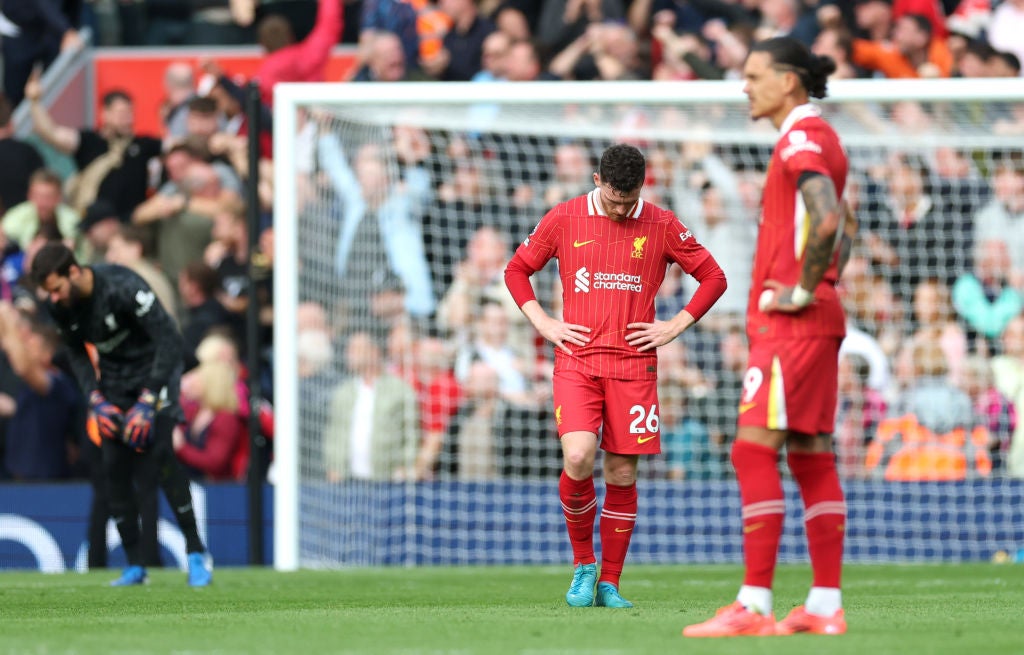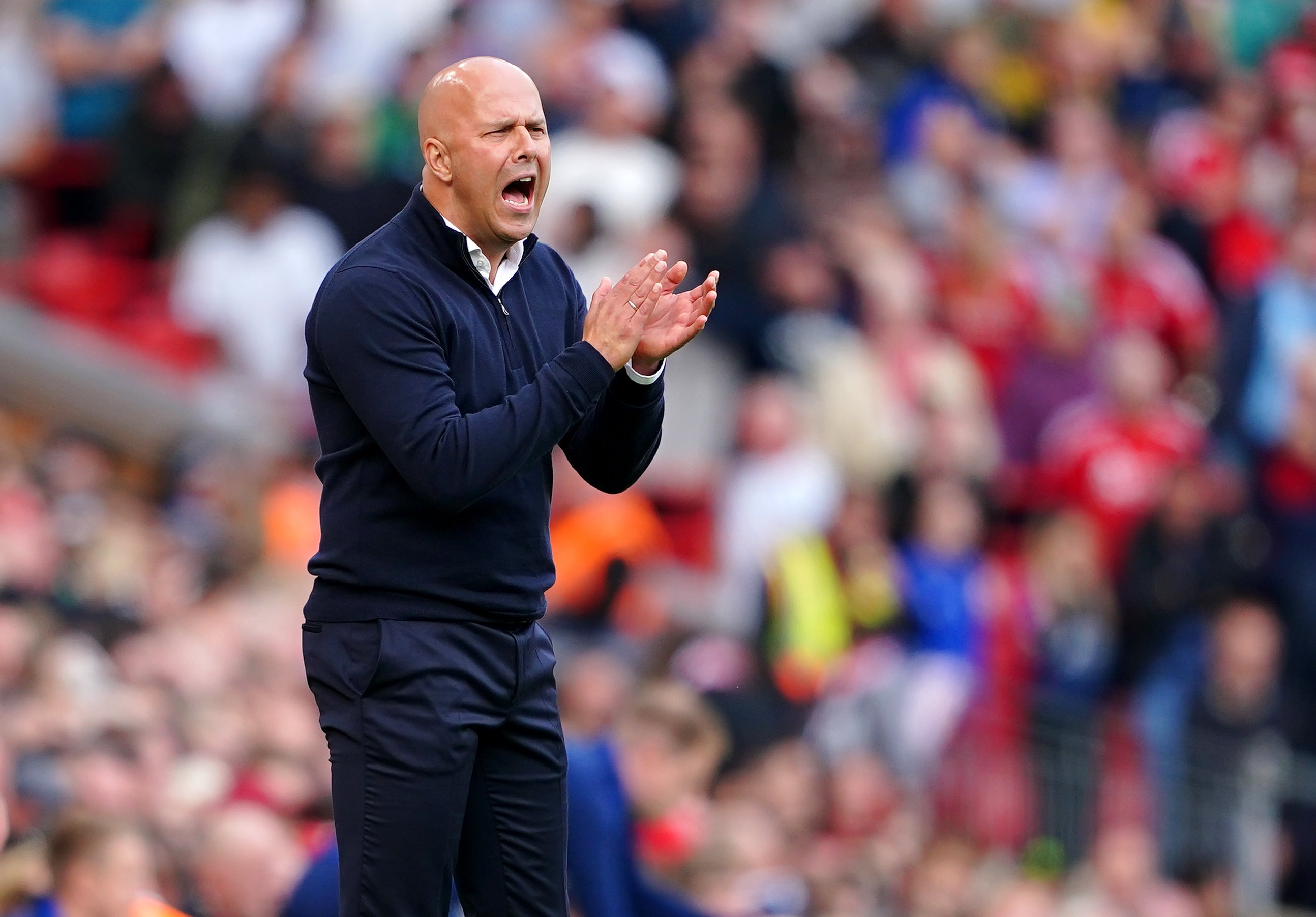In September 2013, West Bromwich Albion went to Old Trafford, Morgan Amalfitano and Saido Berahino scored and they won. There is a temptation to wonder if, in the process, they changed Old Trafford. In the subsequent months, Everton, Newcastle, Swansea and Sunderland – none exactly accustomed to away wins at Manchester United – followed suit.
The following season, it was Swansea, Southampton and West Brom, the next Norwich and, yet again, Southampton. In the subsequent eight years, Aston Villa, Bournemouth, Brighton, Burnley, Cardiff, Crystal Palace, Fulham, Sheffield United, West Ham and Wolves did likewise. For some, it was a first victory at Old Trafford ever, for some a first in decades and then, for others, a second in as many trips.
None of which is necessarily to mean that Anfield is about to become the Merseyside equivalent, a place where opponents used to arrive expecting defeat and now turn up buoyed by the sense of possibility. It will take more than one result for that. But 2013, like 2024, has marked the end of an era at historic clubs: it did not take long after Sir Alex Ferguson’s retirement for Old Trafford to lose its feel of unconquerability.

For Arne Slot, a loss in his second home game as Liverpool manager does not automatically mean he is Anfield’s equivalent of David Moyes. Yet if it presented a warning in the manner of it – with Nottingham Forest flooding the centre of the midfield to disrupt Slot’s tactics – it did in the outcome, too. For Forest, it was a first win at Anfield since 1969.
For Liverpool, it was the sort of result they seemed to have banished to the past. They have, admittedly, lost three of their last six home games, with Atalanta and Palace denying Klopp an unbeaten farewell to his adopted home.
Yet look at the German’s final seven seasons at Anfield and his was a remarkable record. Liverpool lost six consecutive home league games in 2021, but in lockdown and without a crowd. With supporters present, they lost once each in 2022-23 and 2023-24 in the top flight. In four other campaigns – 2017-18, 2018-19, 2019-20 and 2021-22 – no English side left with three points. It was Klopp’s fortress.
And Saturday therefore represented an unpleasant surprise for Liverpool after Slot’s smooth start. It was a contrast to their latest win at Old Trafford, 13 days earlier. “We have to turn this around and make this a sort of a reality check to be better for the rest of the season because if you want to achieve things this season the contrast between the games we played is too big,” said captain Virgil van Dijk.
Slot did not hide from the significance. “It is a big setback,” he said. “If you lose a home game that’s always a setback especially if you face a team – you never know, maybe they will go all the way to fight for the Champions League places – but normally this team isn’t ending up in top 10 so if you lose a game against them that’s a big disappointment.”
Impressive as Forest were, Slot is probably correct in his assessment of their prospects. If the mid-table teams have had a party too often at Old Trafford in the last 11 years, Liverpool have to ensure Anfield does not become their next favourite away day.
There is a question how long a great manager’s ideas and influence outlast him. Liverpool, with a three-decade history of success that spanned the reigns of Bill Shankly, Bob Paisley, Joe Fagan and Kenny Dalglish, have been the opposite of United, whose glory days ended with the resignations of first Sir Matt Busby and then Ferguson.

But Anfield was subdued on Saturday. A ground that saw many a comeback and witnessed many a late goal last season – and at plenty of other stages in Klopp’s tenure – seemed to accept there was no sequel at the start of the Slot years. A few fans began to head for the exits before the final whistle.
Rewind nearly nine years and Klopp criticised the supporters, saying he felt “pretty alone” when some left during his first home defeat, to Palace in 2015. A few weeks later, his side were mocked for what was seen as their excessive celebrations with the crowd after Divock Origi’s injury-time goal brought a draw against West Brom. It was, though, a moment Klopp used to try and harness the power of Anfield. Much of what followed felt scripted by the German.
Slot is a different character. He had promised there would be no fist pumps to the crowd: on Saturday, however, that was not because he cuts a lower profile, but because there was nothing to celebrate. Part of the Anfield matchday routine is gone. Another – winning – eluded Liverpool on the day. It may simply be a one-off. But United represent the warning if it is a sign of things to come.











